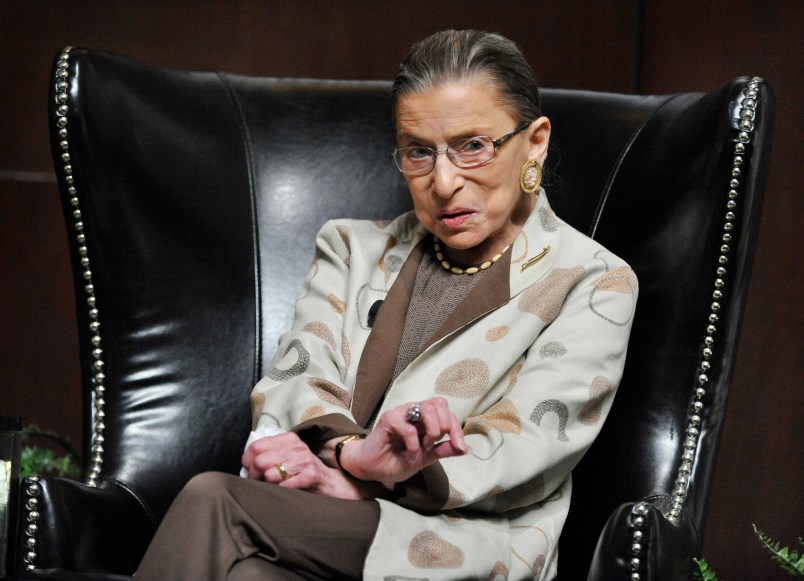Justice Ruth Bader Ginsburg penned the fierce dissent against the Supreme Court’s 5-4 decision Tuesday to invalidate a key section of the Voting Rights Act, accusing the conservative justices of displaying “hubris” and a lack of sound reasoning.
“[T]he Court’s opinion can hardly be described as an exemplar of restrained and moderate decision making,” wrote the leader of the court’s liberal wing. “Quite the opposite. Hubris is a fit word for today’s demolition of the VRA.”
Joined by the three other liberal-leaning justices, Ginsburg scolded the conservative majority and its rationale for throwing out Section 4 of the law — which contains the formula Congress has used to determine which states and local governments must receive federal pre-approval before changing their voting laws.
“Congress approached the 2006 reauthorization of the VRA with great care and seriousness. The same cannot be said of the Court’s opinion today,” she wrote. “The Court makes no genuine attempt to engage with the massive legislative record that Congress assembled. Instead, it relies on increases in voter registration and turnout as if that were the whole story.”
Congress has renewed the Voting Rights Act four times — most recently in 2006 by an overwhelming 390-33 vote in the House and a 98-0 vote in the Senate. Chief Justice John Roberts, the author of the majority opinion, argued that “[o]ur country has changed” particularly in the mostly southern jurisdictions covered by the Voting Rights Act.
“In my judgÂment,” Ginsburg wrote, “the Court errs egregiously by overriding Congress’ decision.”
She lambasted the majority for “disturbing lapses” in its reasoning, citing as one example its failure to explain why the plaintiff in the case, Shelby County of Alabama, should be freed from preclearance despite its history of voter discrimination.
“Throwing out preclearance when it has worked and is continuing to work to stop discriminatory changes is like throwing away your umbrella in a rainstorm because you are not getting wet,” Ginsburg wrote.
The Clinton-appointed justice said there was a “sad irony” to the Supreme Court throwing out a piece of the law it admits has been effective at reducing discrimination.
“The sad irony of today’s decision lies in its utter failure to grasp why the VRA has proven effective,” she wrote. “The Court appears to believe that the VRA’s success in eliminating the specific devices extant in 1965 means that preclearÂance is no longer needed. … With that belief, and the argument derived from it, history repeats itself.”






